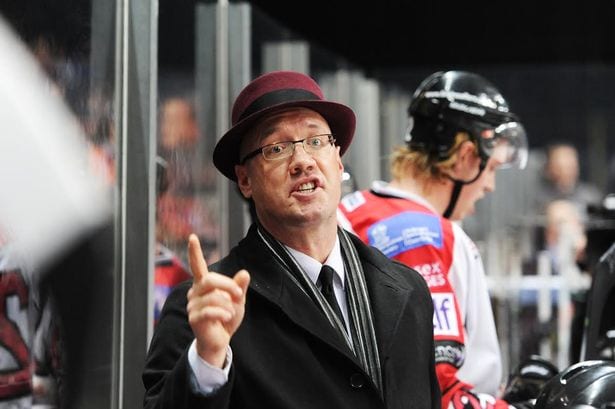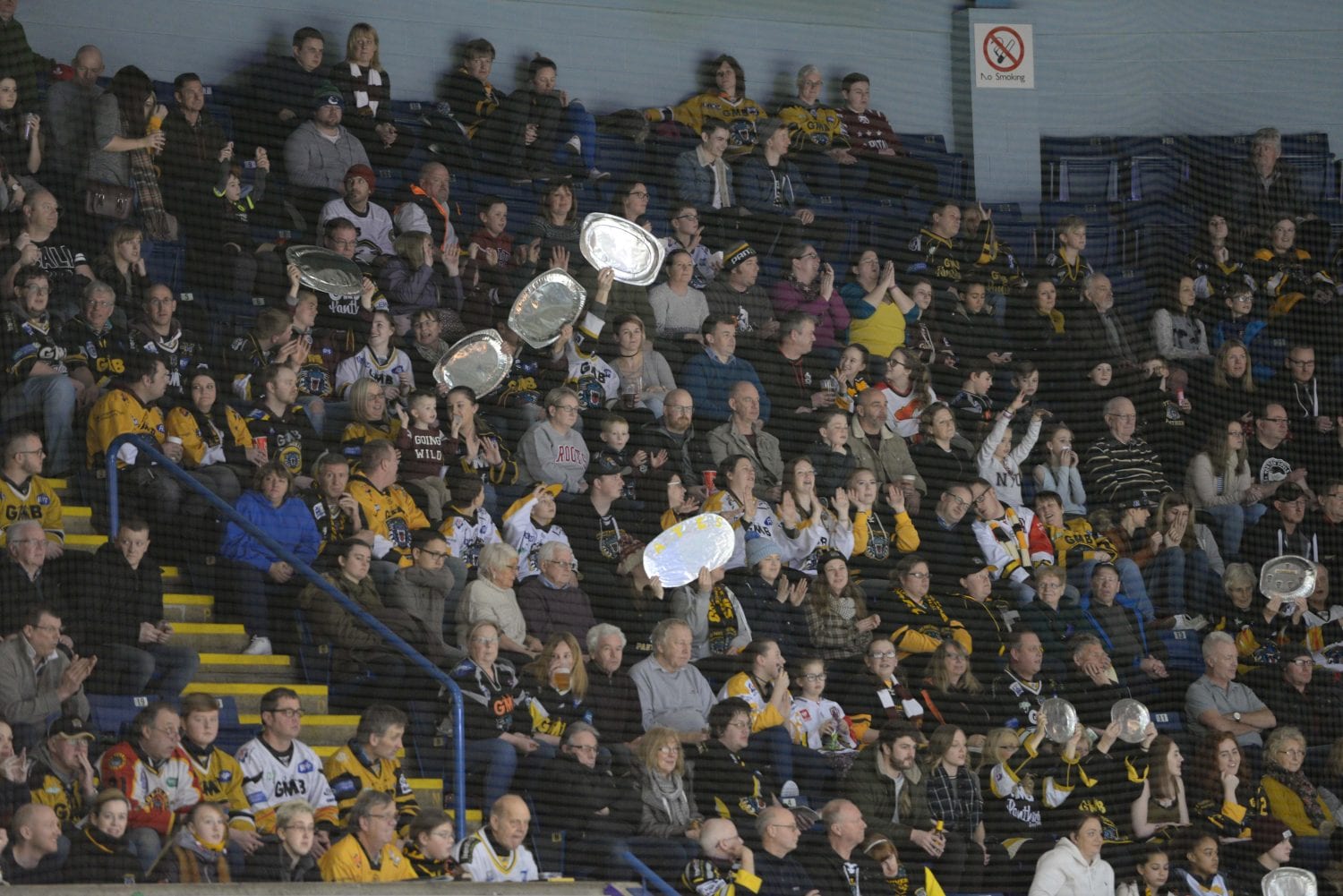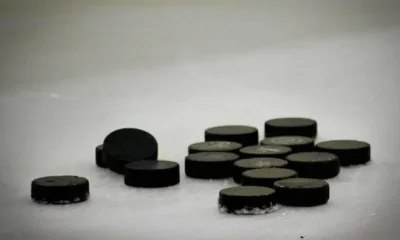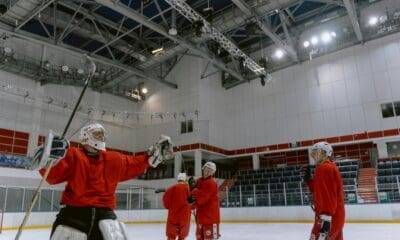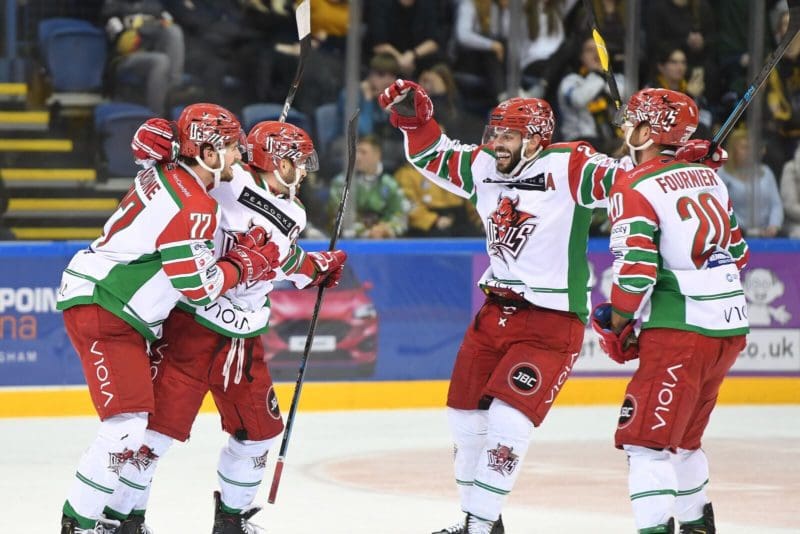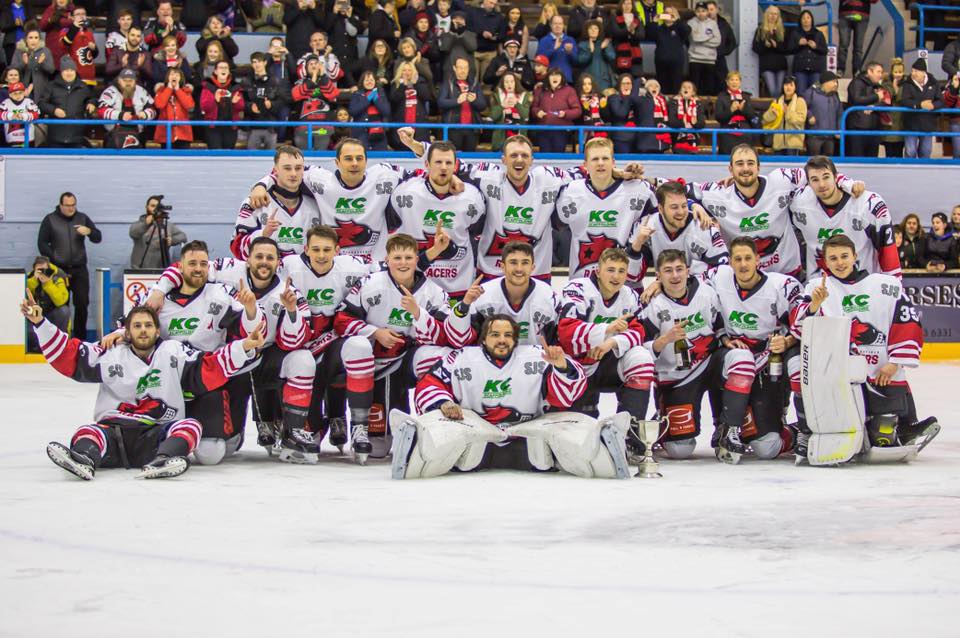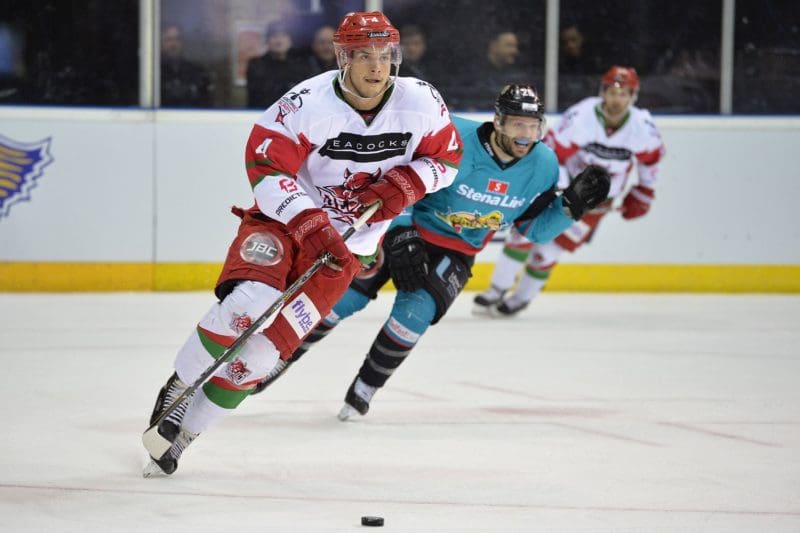When I first got the idea for this article I thought it was going to be about history but the more I thought about it the more I realised that it wasn’t – it’s really about time.
The article about history will still get written as there are definitely things I want to say about that but, if nothing else, it looks like the research needed is going to take a lot longer than I thought.
I’ve been thinking a lot about time over the past few weeks and how it changes you. I’m not the same person I was when I started watching ice hockey. It’s not just the physical aspects – I was an eleven year old boy then.
It’s more about the way I interact with the sport and how that has changed over the years. I don’t think that eleven year old boy, barely out of short trousers, was as cynical about the game as I am now.
Deep down I know he wasn’t – why would he have been? The things that have made me cynical hadn’t happened yet. Back then I was young and just enjoyed the game for what it was – fast, hard-hitting and, it seemed to me, full of excitement.
I didn’t know anything about the politics behind the scenes, the off-ice shenanigans enjoyed by some players or the owners that didn’t, shall we say, always have the teams’ interests at heart. I was just all about the game.
I wish I still was. The problem is that, if you’re like me at least, you can’t unlearn what you’ve learnt so everything you find out, every debacle that unfolds in front of you has an effect on you, chipping away at that youthful exuberance in the same way that water will wear away any kind of stone over time.
How fast this erosion occurs depends on what type of person you are. I think I’m somewhere in the middle, more limestone than granite.
It would be easy to dismiss all that by saying that everyone has a certain amount of exuberance and excitement at that age and you’d be right.
I’ve watched the same process happen with my children as they’ve grown into young adults who are happy to weigh up the pros and cons of individual players develop from children who, in one instance, decided Brent Pope was his favourite player simply because he was really nice to him at a meet the players event.
The thing is that I think that something similar happens to everyone regardless of the age that you start doing something (in this case watching ice hockey).
Starting out you get caught up in the excitement of something new and exciting – you don’t have any idea whether what you’re watching is good or bad.
We’ve all been in situations where you’re told by a new fan that what you thought of as a turgid, dismal capitulation by your own team was, to them, a really thrilling, tense encounter that could so easily have gone your team’s way haven’t we? No? It must just be me then.
In a way I’m envious of those fans, whether they’re new or old, who remain resolute in the face of the evidence to the contrary. The granite fans if I can stretch the rock analogy even further.
It must be great to be able to withstand the negativity and keep cheering on your team. I wish I had that in me, but I’m more and more often coming to the conclusion that I don’t.
It might be because I’m a Nottingham Panthers fan, but these days I take everything my own club tells me with a pinch of salt.
I feel like I’ve been lied to or misled so many times that I just don’t trust what they say anymore. I hate that but it’s there, in my psyche and there’s not much I can do about it.
If time changes you over time then there are some things that you take with you – invisible baggage that you pick up along the way. That’s not necessarily always a bad thing.
These are the things that time can’t change and while they probably contribute a lot to what I’ve talked about already there is a different, happier, side to it.
Part of that baggage are the memories you accumulate over time – the great players, the brilliant wins, the fights, the away trips, even the terrible players and the massive defeats will linger in the mind and, eventually, those memories can be taken out of the memory banks and examined, if not with fondness then a certain wry smile.
I can still remember the name of my first hero – Doug Withenshaw – but I have to admit I can only recollect a few strange things beyond that.
He wore 22, the first of, I think, only three players ever to do that for the modern era Panthers (Paul Adey and Mike Urquhart being the only other two I can bring to mind).
Doug’s dog once attacked his shorts, shredding them to ribbons and his ice hockey skills, shall we say, somewhat eclipsed his sewing abilities.
He worked in a bakery for at least some of his time in Nottingham and during that period the cafes at the old barn used to sell chocolate covered doughnuts that, in 1981 felt like the very height of indulgence and taste to an eleven year old boy.
There have been better players than Doug – the game in 1980 was a lot different to what it is now, but even though I can’t remember a huge amount about him I’ll still always think of him as my first hero. I wonder if my son still thinks that way about Pope? I sort of hope not, but that’s up to him.
If he does still idolize Pope then that’s fine because it’s his choice and different people see the game in different ways. You only have to read any form of social media to understand that.
The fact is that difference is good – it wouldn’t do for us all to think the same. There’s a saying that there are more things that bring us together than keep us apart, or something like that, and that’s the way I see ice hockey.
Yes, we all support different teams, but we all watch ice hockey. You only have to look at the play-off weekends across the leagues and the way that rival fans mingle with each other to see what I’m talking about.
Even though the sport brings us together we still retain our differences. We might celebrate the trophies our team might win as a group, but in reality while that group will all be feeling that euphoria in similar ways it will also be different for each person. We sit in a crowd but we watch individually.
That piece of silverware means different things to different people. For me, seeing a Panthers’ captain lift a trophy, bowl or plate above his head is always tinged with a little sadness. It makes you miss those people who are no longer around that little bit more.
You want to be able to share the moment with them and you know you can’t and that always takes the shine off things that little bit. There’s always that lull after the euphoria as the adrenalin starts to dissipate when those feelings really hit home.
It’s one of the things I always remember about winning the league in Belfast. As we waited for the players to come in to Rockies I tried to do a piece to camera for Cats Whiskers TV about how an achievement like that makes you reflect on those who are no longer around to see it.
The clip, rightly, ended up on the (digital) cutting room floor. I rambled on incoherently for a couple of minutes, still wrapped up in the emotion unable to get my words out.
Fortunately Panthers fan Paul Ellis put it far more eloquently than I ever could a little later in the evening, it’s just a shame he got the date wrong at the end.
Maybe this article isn’t about time after all, at least not exclusively. Maybe it’s about people and what time and ice hockey do to them. Everyone changes over time, we can’t help that.
Our lives are shaped by those events that go on around us for good or ill. We just have to make sure that we keep going. Hockey is serious – okay, hockey is life, but life doesn’t have to drag you down.
If hockey is dragging you down then maybe you should look at why you go. As for me, I might be cynical, it might feel like I deliberately disagree with everything my club says at times but, when it’s good, I still enjoy watching the hockey.
In fact, if I’m entirely honest in a weird way I enjoy it when it’s bad – it gives me something to moan about.
(Image permissions: Cardiff Devils & Karl Denham)

